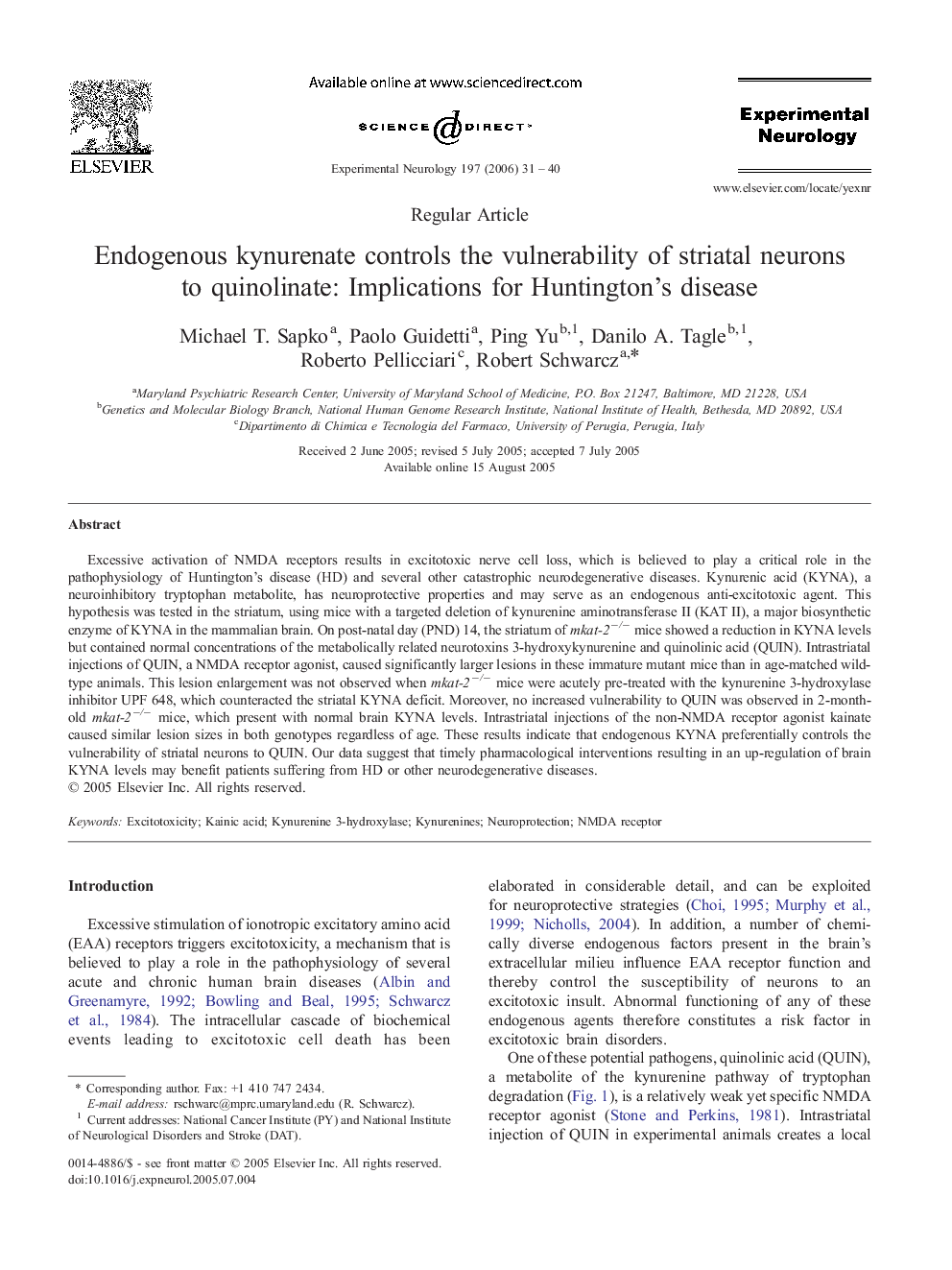| کد مقاله | کد نشریه | سال انتشار | مقاله انگلیسی | نسخه تمام متن |
|---|---|---|---|---|
| 3057663 | 1186606 | 2006 | 10 صفحه PDF | دانلود رایگان |

Excessive activation of NMDA receptors results in excitotoxic nerve cell loss, which is believed to play a critical role in the pathophysiology of Huntington's disease (HD) and several other catastrophic neurodegenerative diseases. Kynurenic acid (KYNA), a neuroinhibitory tryptophan metabolite, has neuroprotective properties and may serve as an endogenous anti-excitotoxic agent. This hypothesis was tested in the striatum, using mice with a targeted deletion of kynurenine aminotransferase II (KAT II), a major biosynthetic enzyme of KYNA in the mammalian brain. On post-natal day (PND) 14, the striatum of mkat-2−/− mice showed a reduction in KYNA levels but contained normal concentrations of the metabolically related neurotoxins 3-hydroxykynurenine and quinolinic acid (QUIN). Intrastriatal injections of QUIN, a NMDA receptor agonist, caused significantly larger lesions in these immature mutant mice than in age-matched wild-type animals. This lesion enlargement was not observed when mkat-2−/− mice were acutely pre-treated with the kynurenine 3-hydroxylase inhibitor UPF 648, which counteracted the striatal KYNA deficit. Moreover, no increased vulnerability to QUIN was observed in 2-month-old mkat-2−/− mice, which present with normal brain KYNA levels. Intrastriatal injections of the non-NMDA receptor agonist kainate caused similar lesion sizes in both genotypes regardless of age. These results indicate that endogenous KYNA preferentially controls the vulnerability of striatal neurons to QUIN. Our data suggest that timely pharmacological interventions resulting in an up-regulation of brain KYNA levels may benefit patients suffering from HD or other neurodegenerative diseases.
Journal: Experimental Neurology - Volume 197, Issue 1, January 2006, Pages 31–40